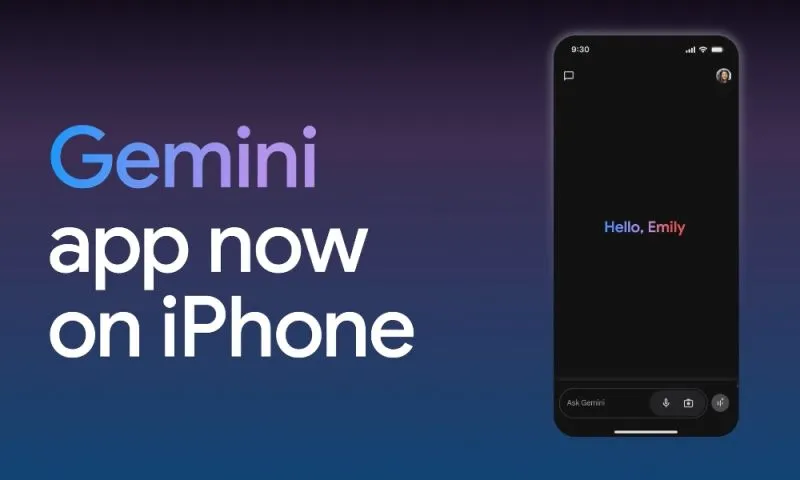In October 2025, WhatsApp announced a significant policy update that directly affects the growing use of artificial intelligence tools within its ecosystem. The platform, owned by Meta, revised its terms of service to explicitly prohibit general-purpose chatbots from operating on WhatsApp. This decision highlights the company’s intent to draw clear lines between permissible AI usage and broader, unregulated chatbot deployment.
The move comes at a time when chatbots powered by advanced AI models have surged in popularity across industries, raising both opportunities and challenges. While WhatsApp remains a vital tool for personal communication and business engagement, the company now seeks to regulate how conversational AI fits within its framework.
What Has Changed in WhatsApp’s Terms?
The updated terms of service specifically ban the deployment of general-purpose chatbots—AI tools that attempt to handle a wide variety of tasks and open-ended conversations.
Instead, WhatsApp encourages AI integrations that:
-
Are purpose-built for customer service or business operations.
-
Support task-specific workflows, such as booking confirmations, FAQs, or e-commerce assistance.
-
Operate with clear alignment to business API rules and user consent protocols.
By contrast, chatbots designed to act as open conversational companions or all-purpose assistants—similar to AI models accessible via web or dedicated apps—are no longer permitted to operate natively on WhatsApp.

Why Did WhatsApp Ban General-Purpose Chatbots?
1. User Safety & Trust
WhatsApp has always emphasized privacy, encryption, and trust. General-purpose chatbots introduce unpredictable conversations that may generate misinformation, unsafe advice, or sensitive interactions without proper guardrails. By banning them, WhatsApp reduces potential reputational and safety risks.
2. Platform Consistency
The platform is primarily used for personal messaging and verified business communication. Allowing unregulated AI companions could dilute the user experience, clutter conversations, or lead to spam-like interactions.
3. Regulatory Pressures
Governments around the world are tightening AI oversight. WhatsApp’s proactive stance may help align with forthcoming compliance requirements on responsible AI usage.
4. Focus on Business Utility
WhatsApp has invested heavily in WhatsApp Business API and commerce integrations. By steering developers toward specialized business chatbots, it strengthens its ecosystem in a way that directly supports monetization and enterprise adoption.
What Types of Chatbots Are Still Allowed?
The ban does not cover all chatbots. Instead, it narrows the scope to ensure they provide direct value in structured ways. Examples of allowed use cases include:
-
Customer Support Bots: Automating FAQs, ticket generation, or troubleshooting steps.
-
E-Commerce Assistants: Helping users browse products, track orders, and handle returns.
-
Appointment Scheduling Bots: Allowing users to confirm or reschedule bookings.
-
Banking & Financial Bots: Secure account updates, payment confirmations, and fraud alerts.
These bots must comply with WhatsApp’s business API rules, be opt-in for users, and clearly identify themselves as automated services.

Impact on Developers and Businesses
Developers
For independent AI developers, the new policy means fewer opportunities for experimentation with large-scale, conversational AI directly inside WhatsApp. Generalist chatbots will have to operate outside the platform, likely through standalone apps or web tools.
Businesses
For companies, the move brings both clarity and limitations:
-
Clarity: Businesses can confidently invest in customer-facing bots without competing against unregulated AI companions.
-
Limitations: Brands hoping to integrate advanced open-ended AI assistants within WhatsApp must now redesign their strategies to fit narrower use cases.
The Broader AI Ecosystem
This shift may encourage the segmentation of AI usage: WhatsApp for customer-centric workflows, while independent apps or platforms host broad conversational AI tools.
Comparing WhatsApp’s Approach to Other Platforms
-
Telegram: Maintains an open ecosystem where AI bots of all types can thrive, including general-purpose companions.
-
WeChat: Operates a highly controlled model in China, focusing on official accounts and commerce services—closer to WhatsApp’s regulated direction.
-
Messenger & Instagram (also owned by Meta): May follow similar restrictions, but still allow limited AI experiments.
WhatsApp’s approach reflects a balance between user trust and business alignment, leaning conservative compared to Telegram’s openness.
How This Affects AI Innovation
At first glance, banning general-purpose chatbots might seem like a setback for innovation. However, several positive effects could emerge:
-
Higher-quality bots: Developers will refine purpose-driven AI tools to deliver reliable outcomes.
-
User clarity: Consumers will know whether they’re interacting with a brand’s official bot versus a generic chatbot.
-
Safer environment: By eliminating unmonitored general bots, WhatsApp reduces exposure to AI-generated misinformation or harmful responses.
The downside is that creative AI experimentation will migrate elsewhere, possibly slowing down WhatsApp’s positioning in the broader AI revolution.
Future Outlook: Where Is WhatsApp Heading?
-
Tighter Integration with Meta’s AI Tools
WhatsApp could prioritize internal AI integrations tied to Meta’s ecosystem (like Meta AI assistant), while limiting third-party chatbot competition. -
Expansion of Business API Ecosystem
By channeling developers into business-aligned bots, WhatsApp strengthens its revenue strategy—particularly in e-commerce, advertising, and enterprise services. -
Global Compliance Adaptation
Expect more AI usage guidelines in response to EU AI Act regulations and similar frameworks worldwide. WhatsApp’s early ban may prove to be a defensive compliance strategy. -
User Experience Preservation
Ultimately, WhatsApp wants to remain a platform for trusted communication, not an experimental AI playground. Its strategy reflects long-term brand protection.
WhatsApp’s decision to bar general-purpose chatbots marks a pivotal moment in the intersection of messaging platforms and AI technology. By prioritizing safety, business alignment, and regulatory readiness, WhatsApp has effectively redrawn the boundaries of acceptable AI use within its ecosystem.
For developers, the message is clear: innovation must now serve specific, practical user needs, not open-ended experimentation. For businesses, the update offers both reassurance and redirection, ensuring that WhatsApp remains a trusted space for customer engagement.
As the AI landscape continues to evolve, this policy highlights a broader truth: the future of conversational AI will be shaped not just by technological advances, but by the platforms that control how—and where—AI can interact with billions of users worldwide.





